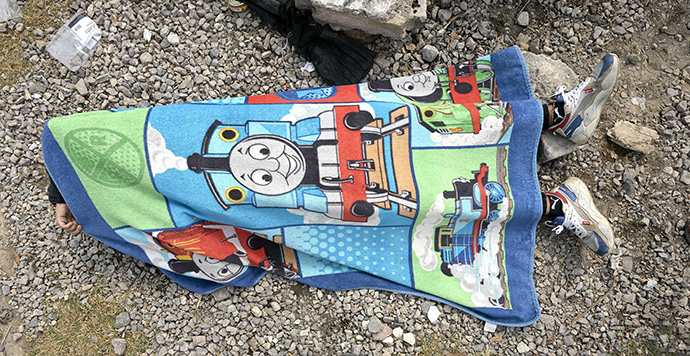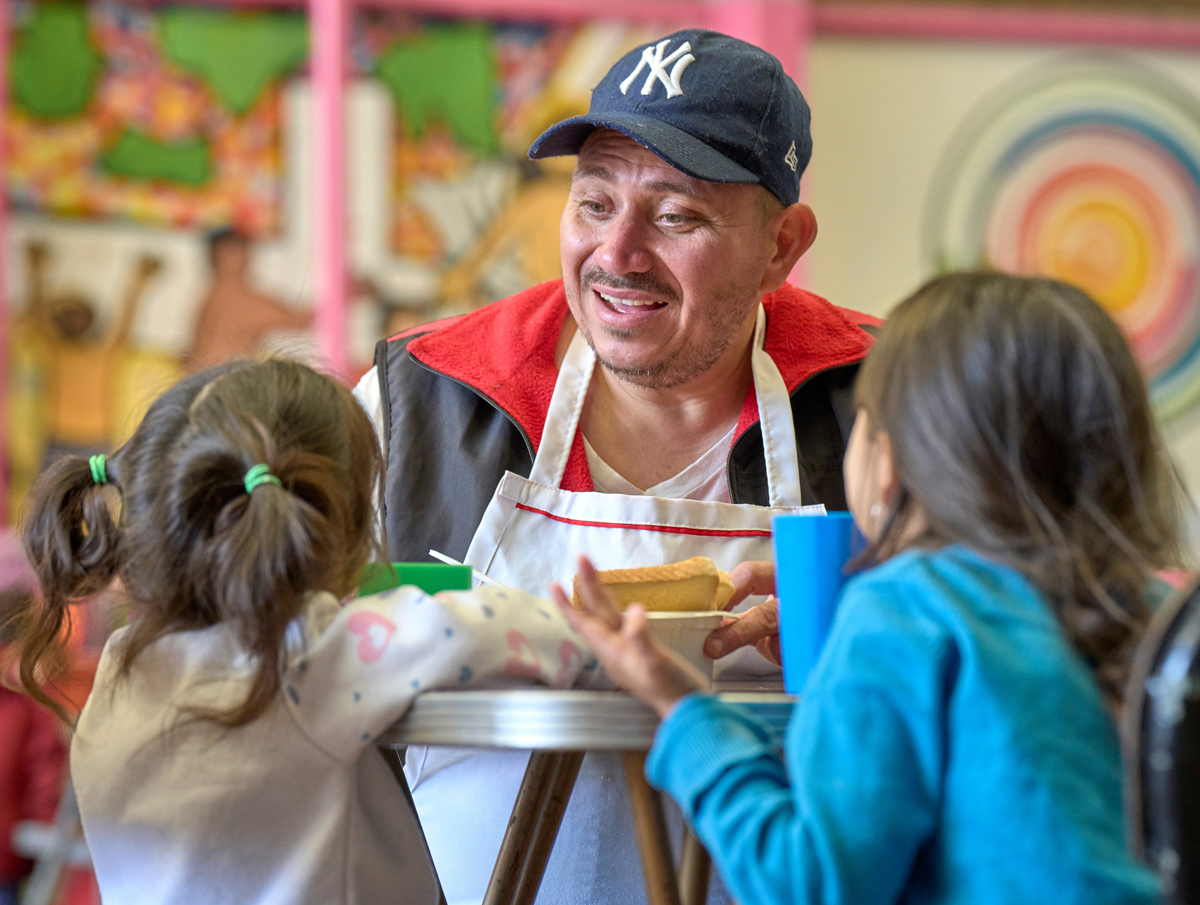Key Points:
- Early last year, church leaders projected a shelter in Apaxco, Mexico, would assist between 100 and 150 migrants per month. By December, the shelter was housing 150 people a night and feeding 600 a day.
- While most migrants formerly were young men fleeing political oppression, today many migrants are complete families, often with young children.
- UMCOR has supported more than 20 projects aiding migrants in the region. The money has filled gaps where existing resources didn’t match the dramatically increased demand for services.
As the number of migrants passing through this small town in central Mexico has skyrocketed in recent months, the community’s Methodist church has continued to offer food, shelter and hope to weary families riding freight trains north toward the United States.
Brian Jose Rivas Romero spent a night in the church in December with his wife and four small children. They fled their home in Honduras 27 days before, leaving two older children behind with relatives.
“We migrants have a hard journey. We’re tired. But then we find a place like this where we can rest, we can bathe our children, and the next day, we can continue our journey with a lifted spirit and renewed hope. It’s a blessing to stay here,” he told United Methodist News during an interview at the Center for Attention to Migrants housed in the Holy Trinity Methodist Church.
Rivas Romero said his family was forced to flee Central America because they feared for their lives.
“We tried to operate a small business,” Rivas Romero said, “but the gangs took it over. Then they took our house from us. We had to flee the country and look for asylum. Staying home would mean losing our lives.”

The church’s ministry to migrants here began a decade ago.
“We’d walk out of Sunday worship services to find hungry migrants waiting in front of the church for the next train,” said Freddy Cerrón Vázquez, a member of the congregation. “They asked us for help, so we began bringing food, enough for two or three or as many as 10 people at a time.” Cerrón Vázquez now spends his days cooking meals at the shelter.
Over the years, the ministry expanded. With help from the United Methodist Committee on Relief, church members remodeled part of their building to become a dedicated shelter, with areas for eating, sleeping and bathing. Donated clothing fills several rooms. Free wifi is available, as well as chargers for migrants’ phones. The local government provides water to the shelter at no cost and assigns health care professionals and medicines for the shelter’s clinic.
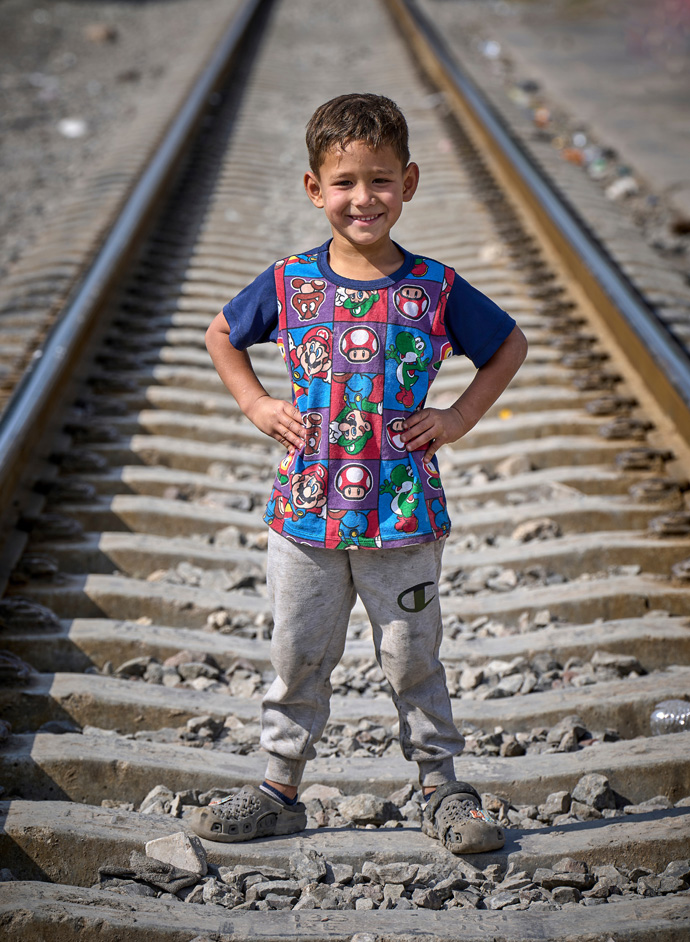
A sign outside declares the center an “Oasis in the Middle of the Journey.”
This past year, the program’s workload exploded. When Dr. Elías Muñiz became the shelter administrator in March, the physician drew up a budget for the rest of the year, projecting the shelter would assist between 100 and 150 migrants per month. But in September, as migrant numbers surged, shelter volunteers assisted 500 migrants, many of them from Venezuela. In October, 1,000 migrants received assistance. In November, the number climbed to 3,000. By December, the shelter was housing 150 people a night and feeding 600 a day.
The increase in migrant numbers reflects a change in who is migrating, according to Bishop Agustín Altamirano Ramos, a regional church leader. He heads the Mexico Annual Conference, one of six conferences in the Methodist Church of Mexico.
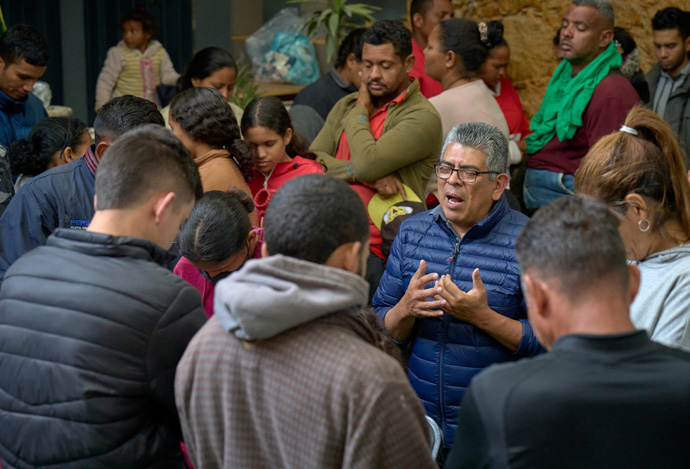
“For a long time,” he said, “we saw mostly men, especially men between 20 and 25 years of age, who told us they were migrating because of political problems. But this slowly changed, and in April, we started to see a lot more women and children, as well as complete families.
“I’m worried that we’re seeing more children, really small children in their mothers’ arms, children learning to walk. They’ve told me that if the men come alone, the women and children who stay behind are often vulnerable and defenseless, with the children at times falling into criminal behavior to survive,” Altamirano said.
“Some have decided that their best opportunity for a better life for everyone is to emigrate as a family,” he added. “Yet, if it’s difficult for an adult to climb aboard a train, imagine how dangerous it is while they’re carrying small children and the bags that contain all their belongings.”
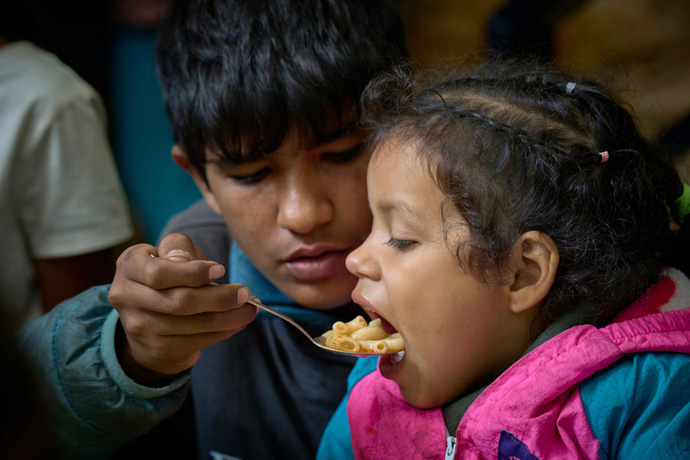
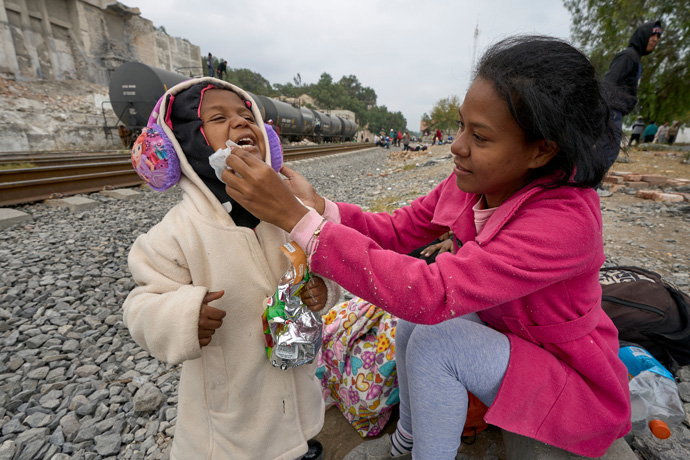
As the number of migrants moving north has grown, the U.S. government has stepped up pressure on Mexico to slow the flow. Sweeps by federal immigration agents have increased, rounding up migrants who are then flown back to their country of origin or dumped across the southern border into Guatemala.
After church leaders negotiated with immigration officials, the Methodist shelter in Apaxco has remained a sanctuary from the sweeps. Immigration agents must remain at least 50 meters away from the building.
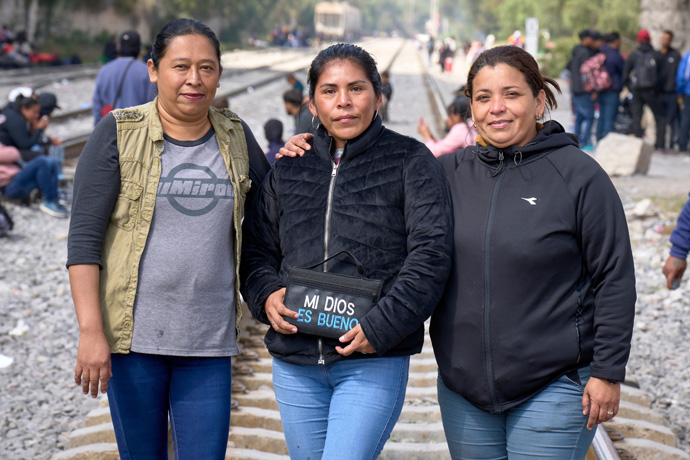
The district superintendent for Apaxco said that outside pressure won’t deter the church’s mission.
“Mexico is doing the dirty work for the United States,” said the Rev. Zabdiel Campos, superintendent of the Valle de Anáhuac District. “It’s sad to say that about our country. But as evangelicals, we aren’t bound by that. We are bound by the Gospel. So, if I can care for the migrant, I will do so. If I can provide them shelter and weep with them, I will do so. If that means being rounded up with them in government sweeps, then so be it.”
A government official praised the work of church-run shelters like the one in Apaxco.
“What would we do without the hundreds of shelters in the country that are sponsored by religious communities? We would be lost,” said Jorge Eduardo Basaldúa Silva, the director general of religious affairs for the federal government. “Their hospitality is fundamental.”
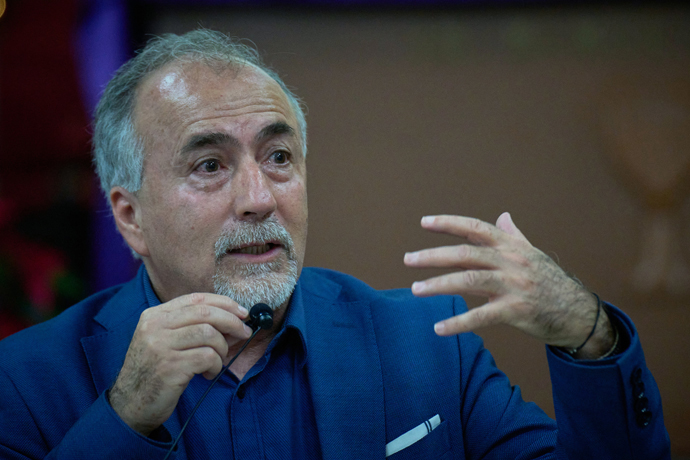
Altamirano said such hospitality is characteristic of Mexico’s people.
“It’s rare that a Mexican family doesn’t have at least one relative in the United States, and that makes us more sympathetic and sensitive to the plight of migrants in our country,” he said.
“We in the church are no different. Most of our church members have family living in another country. My four siblings all live in the U.S. I’m the only one who remains in Mexico. We can’t close our eyes and pretend this situation doesn’t exist.”
Muñiz said other Methodist churches have pitched in to help the Apaxco congregation keep its shelter functioning.
“We’ve constantly been running out of resources, but the churches have responded well,” he said. “They bring us food. They bring us clothing. And there’s a bank account where the churches can contribute money. It’s not a lot, but it helps.”

With an UMCOR emergency grant in 2023, the shelter purchased rice, soap, shampoo, crackers and toilet paper.
“Yet what happened in Acapulco didn’t help us,” Muñiz said, referring to the October passage of Hurricane Otis, a Category 5 Pacific hurricane that left the seaside city devastated. “Everyone’s attention shifted.”
Subscribe to our
e-newsletter
Cristian Schlick is a Mexico-based missionary from Chile who serves as Latin American regional migration specialist for the United Methodist Board of Global Ministries. He said UMCOR has supported more than 20 projects aiding migrants in the region. The money has filled gaps where existing resources didn’t match the dramatically increased demand for services.
In Mexico City, for example, UMCOR supports medical and psychological services at CAFEMIN, a Catholic-run respite shelter for migrants awaiting visas and travel permits or the resolution of legal cases stemming from rights violations. Like every migrant shelter in Mexico, CAFEMIN has been overwhelmed and is often forced to turn away needy families when no floor space remains to house them.
But Schlick said the recent migrant surge is about more than numbers.
“We’ve experienced a diversification of the migrant population, with people arriving from all over Asia and Africa,” he said. “They recently counted people traveling through the Darien Gap in Panama, people who came from more than 70 countries. For migrant shelters and advocates, that creates not just problems in terms of numbers, but also languages. Helping people is more difficult when communication becomes more challenging.”
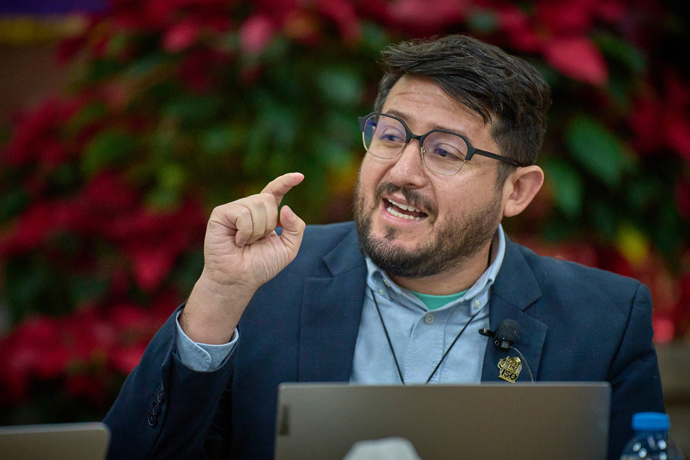
Muñiz said the challenges faced by his shelter and others that spread the length of Mexico won’t deter those who maintain their country’s practice of hospitality toward migrants.
“In Matthew’s Gospel,” Muñiz said, “the king explains that when we give food to the hungry and clothing to the naked, when we respond with compassion to the least among us, we are responding to him. In the migrants who come to our doorstep, we encounter Jesus.”
Photojournalist Paul Jeffrey, a former missionary, covers stories for The United Methodist Church.
News media contact: Julie Dwyer at (615) 742-5470 or newsdesk@umnews.org. To read more United Methodist news, subscribe to the free Daily or Weekly Digests.
